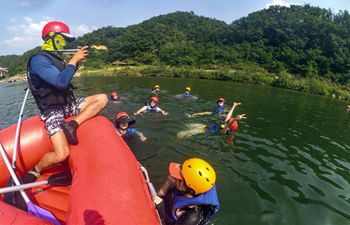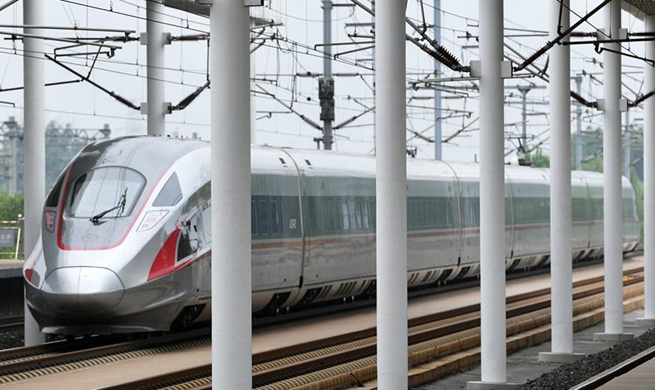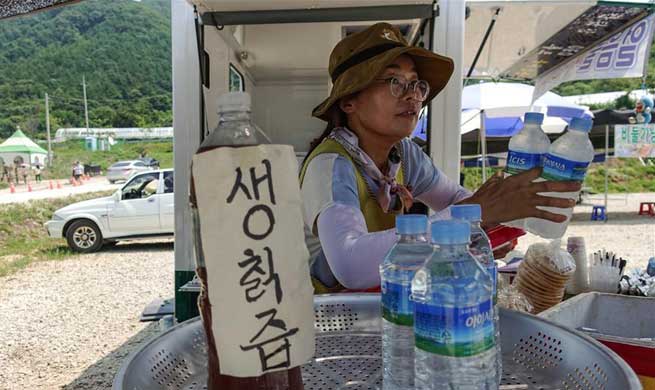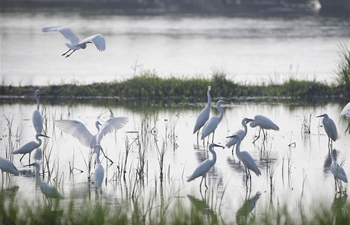QUITO, Aug. 2 (Xinhua) -- Given the complexity of the diplomatic deadlock surrounding WikiLeaks founder Julian Assange, it is impossible to "set a timeline or determine when a solution" might be found, Ecuadorian Foreign Affairs Minister Jose Valencia said Thursday.
Assange has been holed up at the Ecuadorian Embassy in London since 2012. Ecuador granted the anti-secrecy activist political asylum and citizenship, but Britain has refused to give him safe passage to leave the country, threatening to arrest him should he step foot outside of the building.
"The United Kingdom has not changed its position ... we are trying to do what we can so the matter moves along and we can reach an understanding," Valencia said in an interview with Radio Publica.
"It's not a simple issue, it's very complicated ... and the complexity springs from the politics involved," he added.
While earlier allegations of sexual misconduct, brought against Assange by Swedish prosecutors, have been dropped, Britain has an outstanding arrest warrant stemming from his violating bail terms by taking refuge at the Ecuadorian embassy.
An eventual solution must take into account the concerns of all three parties involved: Ecuador, Britain and Assange, said Valencia.
"We don't believe any side can individually make a decision and then say this is the solution to the problem. It's an extremely complicated issue with various players," Valencia said.
Ecuador, as the country that granted Assange international protection, has to protect his rights, said the top diplomat.
His comments come a day after the 47-year-old whistleblower, reportedly in ailing health, called on his native Australia to intervene on his behalf, fearing he may be ejected from the embassy.
In February, a British court ruled that the arrest warrant against Assange was still valid, despite that the Swedish authorities no longer want to question him.
Assange applied for asylum rather than travel to Sweden to face questioning because he believes the Swedish case was a ploy to have him extradited to the United States, where he stands to be indicted for releasing confidential U.S. government documents.
"Those who demand Ecuador find a quick solution forget we have been dealing with this problem for six years," Valencia said.
Speaking about Assange's health condition, Valencia said: "He is in an office that doesn't provide day-to-day living space and six years is a long time, and we are worried about that."

















